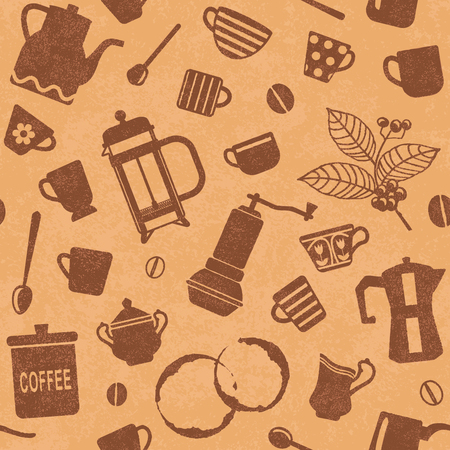The British Brew: Understanding Coffee’s Carbon Journey
From the gentle hiss of a moka pot on a Sunday morning to the bustling queues outside high street cafés, coffee has woven itself into the fabric of British daily life. Yet, behind every perfectly poured flat white or sturdy mug of instant lies a remarkable journey—one that crisscrosses continents and leaves a carbon footprint at every step. For many Britons, the ritual of coffee is as much about comfort as it is about culture, but few pause to consider how our unique consumption habits shape the environmental impact of each cup.
In the UK, our love affair with coffee takes on distinct forms: from the rise of specialty artisan roasters in London’s backstreets to the steadfast loyalty to instant brews found in pantries up and down the country. Each choice—from bean origin to brewing method—plays a role in determining how much carbon is released along the way. Transporting green beans across oceans, roasting them to perfection, packaging for supermarket shelves, and finally brewing at home or work—every stage contributes its share of emissions.
What’s especially British about this journey? Perhaps it’s our penchant for convenience, driving demand for single-use pods and quick-serve chains. Or maybe it’s our growing curiosity for ethically sourced, low-impact options—a nod to both heritage and innovation. Whatever your preference, understanding this complex journey is the first step towards making choices that trim down your coffee carbon footprint without sacrificing that essential morning ritual.
Sourcing Ethically: Opting for Sustainable Coffee Beans
When it comes to morning rituals, few things are as quintessentially British as the first cup of coffee that cuts through the grey. But beneath those rich aromas lies a pressing question: where does your brew come from, and how does it impact both the planet and its people? In recent years, an increasing number of Brits have begun to pay attention not only to flavour notes but also to ethical sourcing—choosing beans that promise a lighter touch on the environment and fairer deals for farmers.
Fairtrade, Rainforest Alliance, and Local Roasters: What’s in Your Cup?
Opting for certified coffee isn’t just a badge of virtue; it is a practical step towards reducing your carbon footprint. Fairtrade certification ensures that coffee growers receive a fair price, which often enables more sustainable farming practices. Meanwhile, the Rainforest Alliance places emphasis on protecting biodiversity and conserving natural resources in coffee-growing regions. And don’t overlook your local roaster—by choosing beans roasted here in Britain, you cut down on food miles while supporting independent businesses at home.
A Quick Guide to Ethical Coffee Choices
| Coffee Type | Main Benefit | Carbon Impact | Community Impact |
|---|---|---|---|
| Fairtrade Certified | Fair pricing for farmers | Moderate (supports sustainable methods) | High (improves livelihoods globally) |
| Rainforest Alliance | Biodiversity protection | Low (focus on conservation) | Moderate (environmental training for farmers) |
| Locally-Roasted Beans | Reduced transport emissions | Lowest (minimal food miles) | High (boosts local economy) |
The Local Advantage: Supporting Homegrown Roasters
Popping by your neighbourhood indie café or ordering from a British micro-roastery means your beans haven’t clocked up thousands of unnecessary miles before reaching your cup. This not only slashes your personal carbon output but also enriches the UK’s own coffee scene—a win-win for taste explorers and planet protectors alike.
Taste with Purpose
If you’re keen to make every sip count, keep an eye out for these labels next time you’re perusing the shelves or chatting with your barista. The choices we make as consumers ripple far beyond our kitchen tables—right back to the hands that pick those precious beans and the fields they nurture. By sourcing ethically, we can all become part of a quietly revolutionary movement: one that lets us savour our daily caffeine fix with a little less guilt and a lot more pride.
![]()
3. Milk Matters: The Environmental Impact of Your Flat White
When it comes to the daily ritual of queuing at your favourite British café, the choice of milk may seem a minor detail, but for the eco-conscious coffee lover, it’s a decision laden with environmental consequences. Traditional dairy milk has long been the default companion for flat whites and cappuccinos across the UK, yet its carbon footprint is surprisingly hefty. Dairy production involves not only significant greenhouse gas emissions from cows but also requires vast tracts of land and water—making each splash in your cup more impactful than you might expect.
The shift toward plant-based alternatives is gathering steam on British high streets, with oat milk leading the charge as a distinctly homegrown favourite. Oat milk, often produced locally in the UK, boasts a much lower carbon cost compared to its dairy counterpart, requiring less water and generating fewer emissions. Soy and almond milks are also popular, though its worth noting that almonds demand considerable water—something environmentally-savvy Brits might wish to ponder during their next café stop.
For regulars at indie coffee houses and bustling chains alike, this isn’t just about taste or trends. Opting for oat or soy can trim your personal carbon tally without sacrificing that cherished morning brew. As more cafés embrace alternative milks and proudly display their sustainability credentials, making an informed choice becomes part of the everyday rhythm of British urban life—a small gesture with potential for big impact, one cup at a time.
4. Takeaway Culture: Cups, Lids, and Eco-Swaps
In Britain, the ritual of grabbing a coffee on the go is as woven into daily life as queueing or complaining about the weather. The ubiquity of the takeaway cup—clutched on chilly morning commutes or during a lazy stroll through a Sunday market—reflects both convenience and a wider cultural shift towards ‘coffee culture’. But this love affair with takeaway has its dark side: single-use cups and plastic lids piling up, most destined for landfill due to their tricky-to-recycle linings.
The good news is that the British public is waking up to the environmental toll of their takeaway habits. Enter the reusable cup revolution. Brands from indie roasteries in Bristol to high street chains in Birmingham now promote eco-swaps, offering incentives for customers who bring their own vessels. Some cafés even refuse to serve in disposables altogether, championing a new norm of “keep-cup or sit-in”.
The Latte Levy and Its Impact
One of the most notable steps towards change was the introduction of the ‘Latte Levy’—a proposed 25p charge on single-use cups. While not yet law across all of the UK, its very discussion sparked widespread action: major chains began trialling cup charges, while others handed out discounts for reusable cup users. This simple nudge has had a ripple effect on consumer behaviour and business practices alike.
How Are Brits Adapting?
| Scheme/Action | Description | Environmental Impact |
|---|---|---|
| Bring Your Own Cup Discount | 10-50p off at many major chains (e.g., Pret, Costa) for using a reusable cup. | Reduces single-use waste; encourages habit change. |
| Cup Deposit Schemes | Pay a small deposit for a reusable cup, refunded upon return (e.g., Starbucks’ pilot schemes). | Circular system minimises disposable cup use. |
| Latte Levy Charges | An extra fee for disposable cups at select locations. | Disincentivises single-use consumption; funds sustainability initiatives. |
| No Lid Policy | Lids given only upon request or not at all. | Cuts down on unnecessary plastic waste. |
Cultural Shifts Brewed Anew
The British are famous for adapting tradition with a modern twist—think flat caps paired with vegan sausage rolls. Today’s coffee scene is no different. As reusable cups become a badge of eco-conscious honour and local councils explore stricter regulations, it’s clear: rethinking takeaway is becoming part of what it means to be an urban Brit. So next time you reach for your morning flat white, remember—it’s not just your caffeine fix that matters, but the vessel you choose to carry it in.
5. Brew at Home: Energy, Equipment, and Reducing Waste
If the scent of freshly ground beans is your morning alarm, then brewing coffee at home is not just a ritual—it’s a statement. For many Britons, there’s a certain charm in crafting the perfect cup while the city stirs awake outside the window. But with climate consciousness on the rise, how can we make our home brews greener?
Choose Energy-Efficient Machines
Your trusty kettle or coffee machine may seem harmless, but their energy usage adds up over time. Consider switching to appliances with high energy efficiency ratings—look for the UK’s A+++ label or Energy Saving Trust endorsements. Pod machines might be convenient, but traditional pour-over or French press methods typically use less electricity. And remember: only boil as much water as you need; it’s a simple habit that saves both energy and pennies on your bill.
Rethink Your Filters and Pods
Single-use pods and paper filters are familiar sights in British kitchens, but they’re not always eco-friendly. Opt for reusable metal filters or compostable alternatives where possible. If you’re partial to pod machines, several brands now offer recyclable or biodegradable options—just check the packaging and local recycling guidelines before tossing them out.
Give Coffee Grounds a Second Life
It’s easy to tip spent grounds into the bin, yet those humble leftovers have so much more to offer. Scatter them on your garden beds to enrich the soil, repel slugs, or even neutralise odours in your fridge (a classic hack known well by city dwellers). Creative souls have even crafted homemade scrubs or soaps from coffee grounds—a quirky touch of urban sustainability.
Small Changes, Big Impact
The key takeaway? Brewing at home gives you full control—from choosing lower-carbon beans to using green energy tariffs where available. Each mindful choice—no matter how small—ripples outwards, helping shape a more sustainable coffee culture across Britain’s bustling towns and quiet suburbs alike.
6. Community and Conversation: Shaping a Sustainable Coffee Culture
If there’s one thing the British know well, it’s how to gather—be it at the local caff, the market square, or tucked into a bustling corner of their favourite indie coffee shop. But as our love affair with coffee deepens, so too does our responsibility to each other and the planet. It’s here, in the heart of our communities and conversations, that real change brews.
Spotlighting Local Initiatives
Across the UK, grassroots projects are quietly revolutionising how we experience our daily cuppa. From Brighton’s reusable cup schemes to Manchester’s community compost bins for used grounds, local heroes are proving that small changes can ripple outward. These initiatives invite us not only to reduce waste but also to participate in something larger than ourselves—a movement stitched together by shared values and neighbourly action.
Zero-Waste Cafés: Sipping with a Conscience
The rise of zero-waste cafés from Bristol to Glasgow is giving new meaning to “takeaway.” Here, every detail is considered—from oat milk sourced from nearby farms to pastries wrapped in compostable paper. Customers are encouraged to bring their own cups and containers, fostering a culture where convenience meets conscience. These spaces serve as living examples that sustainability isn’t just an add-on—it’s woven into every espresso shot and slice of banana bread.
The Power of Dialogue: Brewing Better Habits Together
No movement thrives without conversation. Whether it’s chatting with your barista about ethically sourced beans or joining a community workshop on upcycling coffee grounds, dialogue opens doors. British coffee lovers are uniquely positioned to influence café practices simply by asking questions and sharing ideas. This collective curiosity propels both businesses and individuals toward greener habits—one thoughtful discussion at a time.
Ultimately, it’s this blend of community spirit and open dialogue that shapes a truly sustainable coffee culture across Britain. When we gather around our mugs—not just for caffeine, but for connection—we become part of a story much bigger than ourselves. In these moments, we’re not just lowering our carbon footprints; we’re walking hand in hand towards a more mindful, flavourful future.


